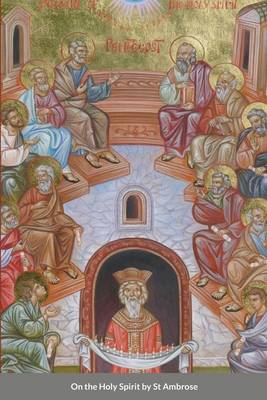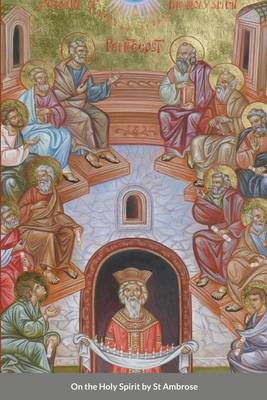
- Retrait gratuit dans votre magasin Club
- 7.000.000 titres dans notre catalogue
- Payer en toute sécurité
- Toujours un magasin près de chez vous
- Retrait gratuit dans votre magasin Club
- 7.000.000 titres dans notre catalogue
- Payer en toute sécurité
- Toujours un magasin près de chez vous
On the Holy Spirit by St Ambrose
Livre broché | Anglais
15,45 €
+ 30 points
Description
In the first section St. Ambrose commences by allegorizing the history of Gideon and the fleece, seeing in the drying of the fleece and the moistening of the threshing-floor a type of the Holy Spirit leaving the Jews and being poured out on the Gentiles. Passing to his more immediate subject, he proves that the Holy Spirit is above the whole Creation and is truly God, alleging as a special argument that the sin against the Holy Spirit can never be forgiven, here or hereafter. He shows how the Holy Spirit is in Scripture called the Spirit of God; that He spoke by the prophets and apostles; that He sanctifies men, and is typified by the mystical ointment spoken of in Scripture. Next, St. Ambrose treats of His oneness with the other two Persons of the Holy Trinity, and shows that His mission in no way detracts from this oneness, but that there is in all the Divine Persons a perfect unity of peace, love, and other virtues. The second section commences with a treatment of the history of Samson in the same way as that of Gideon in Book I. Samson always succeeded so long as the Holy Spirit was with him, but fell into misfortune so soon as he was forsaken. It is shown that the power of the Holy Spirit is the same as that of the Father and the Son, and that there is an agreement in design and working, and in vivifying man. He is Creator and therefore to be worshipped, and He worked with the Father and the Son in founding the Church, and in conclusion is proved the unity of operation in the Three Persons. The third section continues the same argument, showing that the mission of prophets and apostles, and even of the Son Himself, is to be referred to the Spirit, yet without any subjection on the part of the Son, seeing that the Spirit also receives His mission from the Father and the Son. The Godhead of the Holy Spirit is next taken up and proved, when occasion is taken also to show that there are not three Gods or three Lords, for the Three Divine Persons are one in holiness and nature; and the work is concluded with a summary of some of the principal arguments.
Spécifications
Parties prenantes
- Editeur:
Contenu
- Nombre de pages :
- 142
- Langue:
- Anglais
Caractéristiques
- EAN:
- 9781716957710
- Date de parution :
- 07-05-20
- Format:
- Livre broché
- Format numérique:
- Trade paperback (VS)
- Dimensions :
- 152 mm x 229 mm
- Poids :
- 217 g






